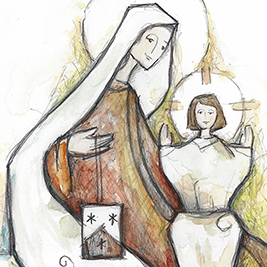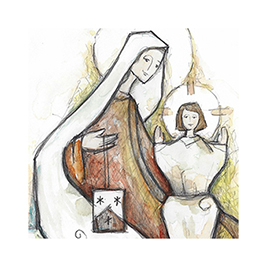Because Carmel means ‘Garden of God’ this novena is entitled “Gardening Tips from the Garden of God.”
Today’s tip: the quiet garden.


Fr Greg, Carmelite priest – blog, homilies, fun and holy ideas
Because Carmel means ‘Garden of God’ this novena is entitled “Gardening Tips from the Garden of God.”
Today’s tip: the quiet garden.

Because Carmel means ‘Garden of God’ this novena is entitled “Gardening Tips from the Garden of God.”
Today’s tip: optimize sun and rain.

Because Carmel means ‘Garden of God’ this novena is entitled “Gardening Tips from the Garden of God.”
Today’s tip: seeds, tiny but mighty.

Because Carmel means ‘Garden of God’ this novena is entitled “Gardening Tips from the Garden of God.”
Today’s tip: how to handle tiny bugs.

Because Carmel means ‘Garden of God’ this novena is entitled “Gardening Tips from the Garden of God.”
Today’s tip: watering the garden.

Because Carmel means ‘Garden of God’ this novena is entitled “Gardening Tips from the Garden of God.”
Today’s tip: pruning roses.

Because Carmel means ‘Garden of God’ this novena is entitled “Gardening Tips from the Garden of God.”
Today’s tip: working with little flowers.

Because Carmel means ‘Garden of God’ this novena is entitled “Gardening Tips from the Garden of God.”
Today’s tip: sunflowers.

Carmelite homily for Friday (Week 14), July 10, 2020 – Lectionary 387 (Matthew 10:16-23)
Jesus expects a lot out of us. He expects
And people will oftentimes ask me, ‘but this can get abusive; when do I say no; when do I say that’s enough? Well, today’s Gospel has the answer. Jesus instructs the Twelve when they’re going out with this great bit of advice, “Be shrewd as serpents and simple as doves.” It’s a great piece of advice. What I think it means is simply; yes, do all these things, but don’t be stupid. Yes, be shrewd as serpents; peaceful as doves, but shrewd as serpents. It means don’t be a doormat, don’t be stupid. But be loving, be dove-like, be peaceful. Be like Jesus.

Carmelite homily for Thursday (Week 14), July 9, 2020 – Lectionary 386 (Matthew 10:7-15)
In today’s Gospel Jesus sends out the Twelve Apostles to begin to preach in his name. He gives them four instructions. He says:
But then he gives them a ton of instructions – a lot more – on what they’re supposed to take or not take. Don’t take sandals, don’t take a second tunic, don’t take a backpack, don’t take gold, don’t take silver, don’t take any money, don’t take a walking stick. It just seems like a lot more instructions of what not to do than what to do. Why? I think John of the Cross may have the answer here. John of the Cross writes, “The soul must empty itself of all that is not God in order to go to God.” I think that’s what Jesus is trying to get at here. All this stuff – the walking staff and the money and all that – is about insecurity and security and about power and status and everything. Let that go. Let the stuff go. And just proclaim love. That’s the invitation; that’s the gift; that’s the real instruction to the Twelve.
